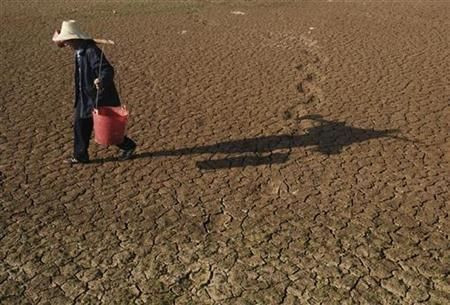Cause of climate change divides Australians

Seventy percent of the individuals surveyed by the Climate Institute believed that climate change is happening, while 89 percent believes that it was man-made. Majority of those surveyed also believed that coal-powered plant should be replaced and that Australia’s coalition should support renewable energies to phase out the fossil fuel-powered generators.
It also showed that solar is the best option for Australia as an alternative energy source, with wind energy coming in second. Furthermore, 69 percent agree that there should be a mixed clean energy. Most Australians reject coal and nuclear powered plants as energy sources.
More than 60 percent of Australians also urged the government to show concern over the adverse effects of climate change, according to a survey conducted by the country’s Climate Institute .
The survey was conducted ahead of Prime Minister Tony Abbott’s announcement on emission targets slated this month.
The study revealed that 63 percent of the 1,016 respondents want Abbott’s government to take the climate change seriously, while 69 percent said that its dangerous effects will not be solved by sweeping climate change under the rug.
“This week’s decision on Australia’s initial post-2020 climate commitment comes as nearly two thirds of Australian believe that the ‘Abbott government should take climate change more seriously,’ a surge of 6 per cent from last year,” John Connor, CEO of The Climate Institute, said in a statement .
Abbott recently announced that Australia is aiming to come up with a reasonable and credible 2020 carbon emission cuts to the Paris climate change negotiations in December, The Guardian reported.
The climate change policy will still have to go through the Coalition Party this month, August, before it is officially unveiled.
Abbott took a jab at other developed nations such as the United States and China that had already revealed their “ambitious” emission targets. Abbott said Australia will not be making any unrealistic targets and will steer away from “all these airy-fairy promises that never come to anything.”
The nation has been under fire for its reluctance to take a climate change stance. Several nations and climate activist have urged Australia to join the fight in reducing the adverse effects of climate change.
“The government and the opposition have an opportunity to join mainstream Australian attitudes with climate commitments and policies which can limit carbon pollution, encourage renewable energy, and clean up our energy system,” Connor added in the statement.
Greg Hunt, Australia’s environment minister, is urging an emission cut of at least 25 percent of 2005 levels by 2030.
Several mining companies in Australia are suffering from closures, and with the expanding renewable energy industry, there is a great need to look for new mining companies. One key component in the renewable energy industry boom is copper for its conductivity. It is the preferred metal for producing solar power due to its cost-effectiveness.
Newcomer Amur Minerals Corporation (London AIM: AMC) has a growth potential as a nickel and copper explorer. Its flagship Kun-Manie mine boasts of abundant nickel and copper discoveries.
According to the United Nations Environment Programme (UNEP), green energy worldwide had an investment of $270 Billion in 2014.
Contact the writer at feedback@ibtimes.com.au





















